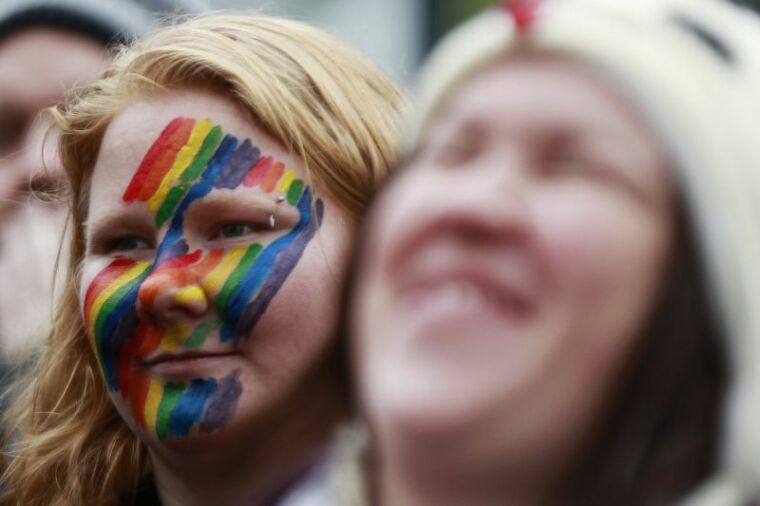Archbishop: Aussie church may have to accept gay marriage, but not as 'holy matrimony'

MELBOURNE (Christian Examiner) – The head of the Anglican faithful in Australia has written a letter to the church claiming it eventually may have to accept the federal government's redefinition of marriage, but the church will not change its doctrine to align with the change.
Archbishop Philip Freier wrote the letter to the church because of the public debate that would occur over the issue of same-sex marriage if parliament authorized a nationwide "plebiscite vote" on the issue.
That means the people would debate the issue and vote to illustrate whether or not they want parliament to enact same-sex marriage. Plebiscite votes, however, are non-binding and would still leave a change in law up to the members of parliament. The vote is more a barometer of public opinion than anything else.
The doctrine of the Book of Common Prayer remains unchanged, that marriage is between a man and a woman, under God, forsaking all others until death parts them. I do not believe that the Anglican Church in Australia is likely to revise its doctrine of marriage.
Approval of same-sex marriage is not a change conservatives want, so they have already opposed several bills that would have changed the law. They also do not want to see the plebiscite vote take place.
Ironically, LGBT advocacy groups also do not want to see the issue debated among the Australian public. They instead want parliament to make the change to align Australia with 21 other countries that have legalized same-sex marriage. The United States is one, though the right to same-sex marriage was created by the U.S. Supreme Court instead of by Congress.
LGBT advocates said recently that a plebiscite vote, which would follow a long public debate on the matter, would harm gays, lesbians and others because of the campaign of "vitriol and prejudice" they would face.
In the letter, Archbishop Freier claims Anglicans should expect the government will eventually hold a plebiscite as a basis for later passing a bill to authorize same-sex marriage, but in reality it already has enacted numerous protections for people in same-sex relationships. Those relationships may not be official, but they are "de facto" relationships similar to marriage, he wrote.
Freier wrote that he supports the proposed plebiscite vote to give Australians a chance to voice their positions on the matter of same-sex marriage, which he called "one of the more contentious topics in 2016."
"If the plebiscite does happen it will be important that Christians – and others – vote according to their conscience and their view of what is best for society, and that the Government brings legislation to enact the will of the people. It is proper to expect that the Parliament should honor the results of the plebiscite," Freier wrote.
Freier believes a plebiscite vote would go in favor of same-sex marriage, based on recent opinion polls, but he said the church "can still stand for and offer holy matrimony between a man and a woman as a sacred ordinance given by God, while accepting that the state has endorsed a wider view of marriage – as, indeed, the state has endorsed de facto relationships by legislating similar protections to those offered by marriage for people in such relationships."
Freier said the Book of Common Prayer, first developed in the 16th century but modified throughout the years, would maintain its definition of marriage, and that is "between a man and a woman, under God, forsaking all others until death parts them. I do not believe that the Anglican Church in Australia is likely to revise its doctrine of marriage."
Like LGBT advocates, public discourse is something the archbishop wrote of as a concern. He said he wants to avoid "harsh or vilifying" language and also said the church should demonstrate pastoral care for those who are gay or lesbian.
"We understand that this is not a theoretical issue for many people, but one that directly impinges on their lives. We understand that sometimes gays, lesbians and others have felt judged and rejected, even ostracized, inside the Church and that we have to be much more pastorally sensitive in the future," Freier wrote.
"Whether this is the threshold event that many in our church think or whether the widening of marriage happened many years ago and further widening is inevitable remains to be seen. What does matter is that we approach this question with prayer, confidence in the Church's teaching as well as kindness in our speech towards those with whom we disagree."